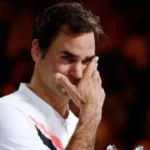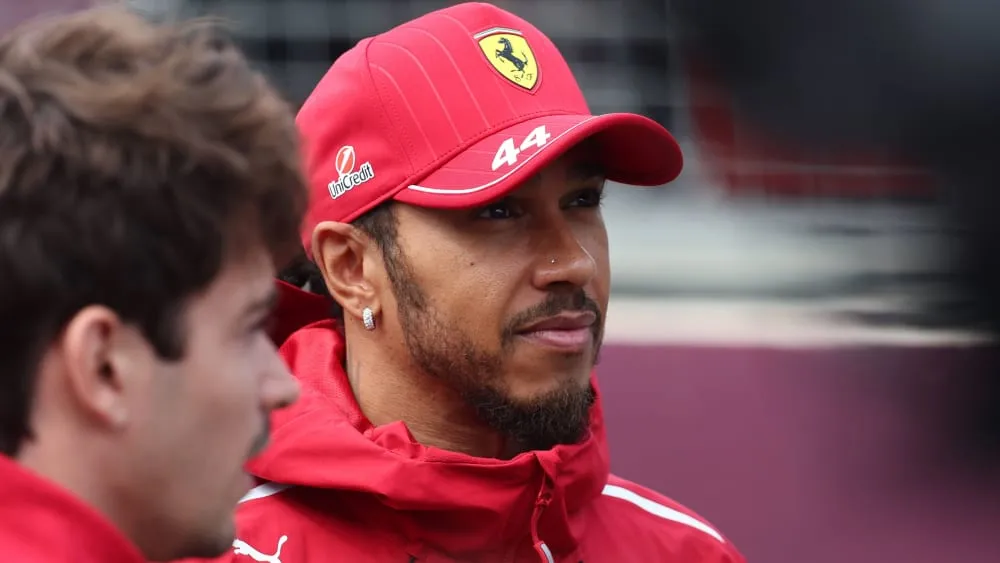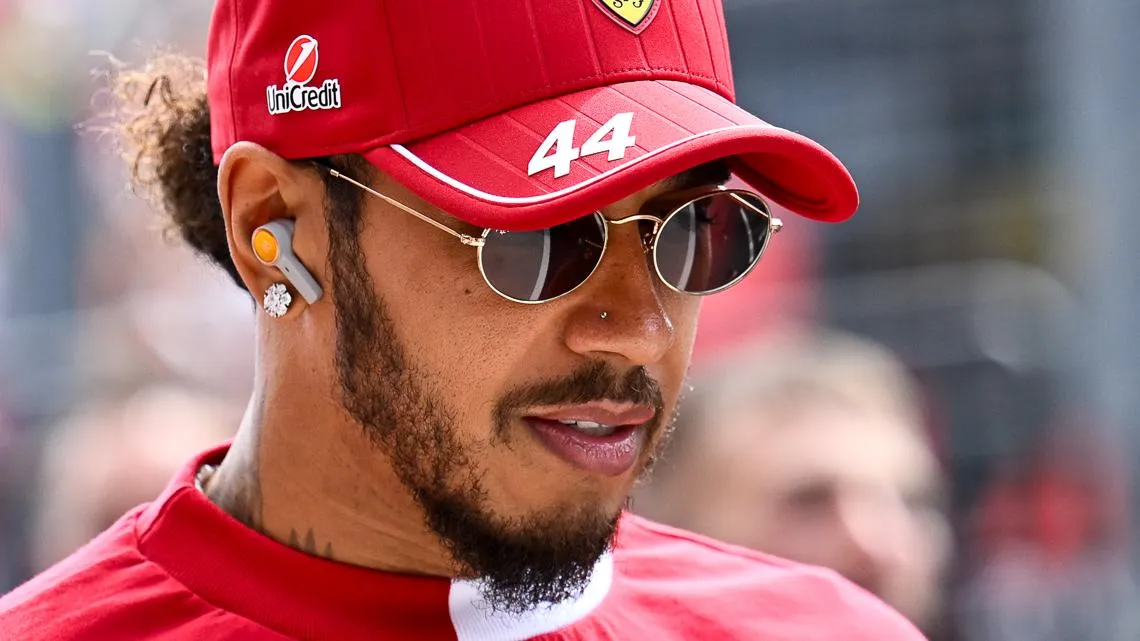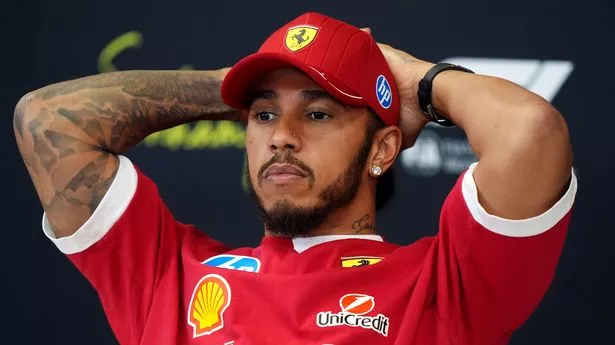

No One Expected Lewis Hamilton To Decline For This Reason – Charles Leclerc Finally Speaks Out
The Formula 1 world has witnessed many twists, turns, and legendary rivalries, but few stories have captured as much attention in recent years as the sudden decline in performance of Lewis Hamilton, a seven-time world champion once regarded as nearly untouchable. Known for his sharp precision, relentless pace, and mental resilience, Hamilton’s dominance seemed unshakeable until recent seasons raised difficult questions.
Now, after months of speculation, Charles Leclerc has finally broken his silence and offered a surprising insight into what he believes has truly caused Hamilton’s struggles. His comments have shocked fans, reignited debates across the paddock, and painted a deeper picture of the emotional and technical battle that Hamilton is currently facing.

The Era of Lewis Hamilton’s Dominance
For much of the past decade, Lewis Hamilton stood as the face of Formula 1’s golden age. From his early days with McLaren to his record-breaking run with Mercedes, he became a symbol of precision, power, and consistency. Every weekend, Hamilton seemed capable of pulling off the impossible turning bad qualifying results into podiums and making the most challenging races look effortless.
His run from 2014 to 2020 marked one of the most dominant streaks in motorsport history. During this era, Hamilton not only won seven world championships but also surpassed Michael Schumacher’s long-standing records, cementing himself as one of the greatest drivers of all time.
However, since the introduction of Formula 1’s new technical regulations in 2022, Hamilton’s form has seen a noticeable dip. While fans initially believed it was simply a matter of adapting to the new car concept, the issues appear to run deeper and that’s where Charles Leclerc’s recent remarks have caught everyone’s attention.
The Sudden Decline: What Went Wrong for Hamilton?
The first signs of Hamilton’s decline began during the 2022 season, when Mercedes introduced a radically new car concept under the new aerodynamic regulations. The W13’s “zero-pod” design aimed for innovation but instead created chaos. The car struggled with porpoising, unpredictable handling, and tire degradation.
For Hamilton, used to a perfectly balanced machine that allowed him to push to the limit, this new design posed unprecedented challenges. Races that once felt natural became battles of endurance, and podiums once routine became rare achievements.
Even as George Russell, his much younger teammate, managed to adapt more quickly and even outscore him in points that season, Hamilton continued to struggle. Fans began to wonder: was this simply a technical issue, or was the once-dominant champion beginning to lose his edge?
Charles Leclerc Breaks His Silence
During a recent media interview following the Singapore Grand Prix, Charles Leclerc was asked about Hamilton’s recent performances and whether he believed the British driver could still compete for wins. Leclerc’s answer was both respectful and revealing.
“Lewis is still one of the greatest ever,” Leclerc began. “But what people often forget is how much mental pressure and motivation affect performance in Formula 1. When you’ve been at the top for so long, with everyone expecting perfection every weekend, it becomes almost impossible to keep that hunger the same way forever.”
He continued, “I think the real reason for his decline isn’t the car or his skills it’s mental fatigue. After so many years of fighting for championships, there comes a point where you start questioning the sacrifices you’ve made. That’s something every driver faces, but for someone like Lewis, the expectations are on another level.”
Leclerc’s comments quickly spread across social media, with fans and experts debating whether he was right. Was Hamilton’s decline a result of technical misfortune, or had the mental strain of years at the top finally caught up with him?
The Hidden Cost of Greatness
Leclerc’s words highlighted something few outside the F1 paddock truly understand the psychological toll of constant success. For drivers like Hamilton, who live under a microscope, every mistake becomes global news. Every race that doesn’t go perfectly is treated as a crisis.
Sports psychologists often point out that long-term dominance can actually drain motivation. The endless pursuit of perfection can turn victories into expectations rather than celebrations. When that happens, even a small dip in results can feel like a disaster.
Hamilton himself has occasionally hinted at this struggle. In several interviews, he’s spoken about mental exhaustion, the difficulty of finding joy in the grind, and the challenge of maintaining passion in a constantly changing sport.
“I’ve given everything to this sport,” Hamilton said earlier this season. “Sometimes, it’s hard to keep that same energy after all these years. But I’m still fighting, and I still believe there’s more left in me.”
The Mercedes Struggle
Another undeniable factor in Hamilton’s performance decline is Mercedes’ fall from dominance. Since the hybrid era began in 2014, the Silver Arrows had set the gold standard for engineering excellence. But the new aerodynamic era, starting in 2022, changed everything.
The team’s initial car concept failed to deliver. Engineers spent months trying to understand and fix the porpoising issue, and while improvements were made, Mercedes remained a step behind Red Bull and Ferrari.
Hamilton’s driving style known for his late braking, precise cornering, and tire management relies heavily on balance and downforce. When those elements disappear, even the best drivers struggle to perform at their peak.
Leclerc’s observation that the car isn’t the main reason may have emotional truth, but technically, the lack of competitiveness clearly played a major role. Hamilton’s decline, therefore, seems to be the result of both mental fatigue and mechanical frustration a combination that can sap even the strongest champions of their edge.
Leclerc’s Perspective: Respect and Realism
Despite the attention his comments received, Leclerc made it clear that his intention was not to criticize Hamilton. “I have huge respect for Lewis,” he said. “What he’s achieved in Formula 1 is something extraordinary. But I also think people forget that even champions are human. Everyone has moments when things don’t click perfectly.”
Leclerc himself has faced similar struggles at Ferrari. Despite being one of the most talented drivers on the grid, he has repeatedly dealt with strategy mistakes, car reliability issues, and the constant pressure of driving for one of the sport’s most iconic teams. His perspective on Hamilton’s situation may therefore come from a place of empathy rather than judgment.
Can Hamilton Bounce Back?
This question now dominates every Formula 1 discussion. Can Lewis Hamilton return to championship form, or has the next generation—led by Max Verstappen, Charles Leclerc, and Lando Norris officially taken over?
There’s reason to believe Hamilton still has what it takes. His racecraft remains exceptional, and his fitness and mental resilience continue to set the standard for professionalism. Moreover, with Mercedes working on a new car concept, there’s hope that the machinery will finally allow him to fight at the front again.
Team Principal Toto Wolff has often defended Hamilton, emphasizing that his talent hasn’t disappeared. “Lewis is still one of the best there is,” Wolff said recently. “Once we give him a car capable of winning, he will be right back at the top where he belongs.”
If Mercedes manages to close the gap to Red Bull, Hamilton’s hunger for an eighth world title a record-breaking achievement could very well reignite.
The Changing Face of Formula 1
However, even if Hamilton does recover his form, the landscape of Formula 1 has changed dramatically. The rise of young stars like Leclerc, Verstappen, and Norris has transformed the grid into one of the most competitive fields in decades.
The sport’s focus has shifted from pure dominance to adaptability and consistency. While Hamilton once thrived on stability, today’s Formula 1 demands flexibility quick adaptation to car updates, new tire compounds, and evolving race strategies.
Leclerc’s comments about mental fatigue may, in this sense, reflect the reality of a sport that never stops evolving. For a driver who has achieved almost everything, staying motivated through constant reinvention is no easy feat.
Fans React: Divided Opinions
Unsurprisingly, fans reacted passionately to Leclerc’s remarks. Some praised his honesty, saying he voiced what many insiders have quietly believed for a while. Others accused him of disrespecting a legend.
Social media debates flared up, with some Hamilton supporters arguing that his decline is purely mechanical citing the car’s lack of pace and Mercedes’ strategic errors. Others agreed with Leclerc’s emotional assessment, suggesting that Hamilton may no longer possess the same intensity that once defined him.
Regardless of which side fans fall on, one thing is certain: the mystery surrounding Hamilton’s struggles continues to fascinate the motorsport world.
The Legacy of a Champion
Even if Hamilton never wins another championship, his legacy in Formula 1 is already beyond question. His achievements have inspired a new generation of drivers, and his consistency over nearly two decades remains unmatched.
For Charles Leclerc, speaking about Hamilton’s situation wasn’t about undermining him it was about recognizing the human element behind the numbers. Every legend eventually faces decline; what defines their greatness is how they respond to it.
If Hamilton manages to turn his current struggles into a resurgence, it will only add another powerful chapter to his already extraordinary story.

Conclusion
Lewis Hamilton’s decline has become one of the most talked-about narratives in Formula 1, not because of failure, but because of what it reveals about the emotional and psychological challenges of sustained greatness.
Charles Leclerc’s comments have reignited a complex conversation about motivation, pressure, and the limits of endurance at the highest level of sport. Whether or not Leclerc is entirely right, his insight touches on a universal truth champions, too, are human.
As the Formula 1 world looks ahead, fans will be watching closely to see if Hamilton can overcome this chapter and return to the front of the grid. Whether he does or not, his influence on the sport and the respect of his peers like Leclerc remains unquestionable.
Hamilton’s journey, with all its highs and lows, continues to remind us why Formula 1 is not just about speed and machinery it’s about resilience, emotion, and the human will to keep fighting, even when no one expects you to.


















